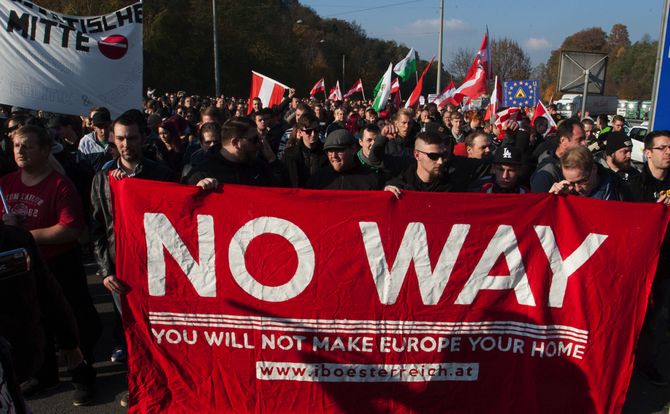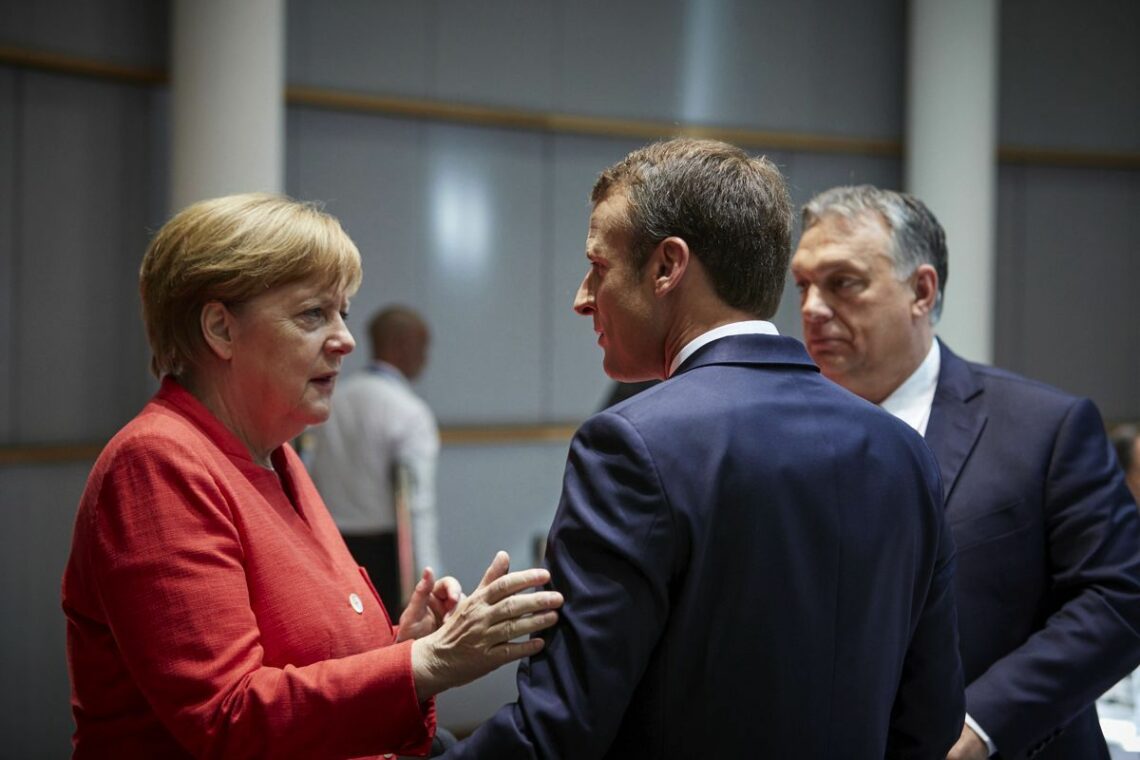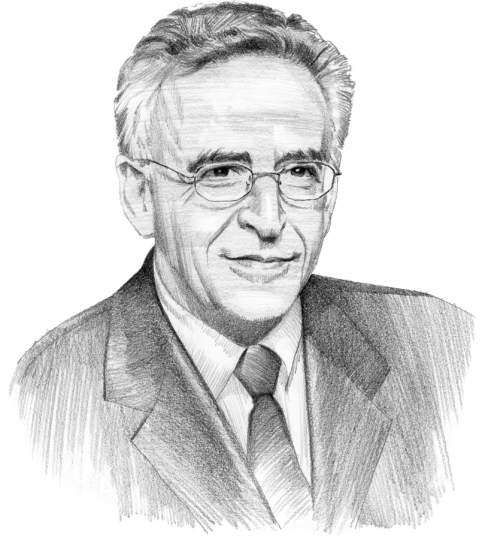Migration and Europe
Judging by the declining numbers of new migrants, Europe is no longer facing an acute immigration crisis. But you would never know it from the decision by the European Council in June to set up holding camps for asylum seekers. Instead, the get-tough policy of EU leaders is increasingly driven by domestic political pressures.

In a nutshell
- Even as the migrant inflow to Europe eases, the policy response remains inadequate
- The June European Council was an unsuccessful attempt to improvise a quick fix
- Mounting political pressures will force EU leaders to come up with stronger meaures
“Europe has many challenges, but migration could end up determining Europe’s destiny,” Chancellor Angela Merkel told German lawmakers on the eve of the European Council meeting in June, where migration was at the top of the agenda. Leading lights in the policy community back her up. The political scientist Ivan Krastev asserts that migration has replaced social class as the main dividing line in European politics.
The migrant crisis is widely held responsible for the European Union’s current difficulties, especially the rise of populism and Brexit. With anti-immigrant populists in power in several EU countries, mainstream leaders are eager to prove that they, too, are tough on immigration.
Heads of government rushed to conclusions at the June European Council meeting, notably in their call to set up, on a voluntary basis, holding camps for asylum seekers and migrants outside the EU. These camps will be euphemistically called “disembarkation platforms” – or “controlled centres” if they are inside the EU.
Council President Donald Tusk said that he was the author of these innovations, along with a proposal for more money to fight illegal migration and to support the Libyan coast guard. Hungarian Prime Minister Viktor Orban also claimed credit.
Dissatisfied with the Council’s proposals, Horst Seehofer, the German interior minister, called for migrants to be turned back at the border with Austria. Matteo Salvini, his Italian counterpart, who has emerged as the dominant figure in the Italian populist coalition, demanded a “repatriation clause” in any future EU trade agreements with African countries, as well as greater burden-sharing by other European countries. Mr. Salvini continues to oppose the disembarkation of migrants in Italy, a stance that puts at risk the EU’s Operation Sophia rescue mission and has been criticized even by the Italian coast guard.
In considering the EU’s likely future development, in the context of migration, it is important to analyze whether Europe does indeed face an acute migration crisis or whether its current difficulties stem instead from a political crisis.
Diminished flow
The case for a full-fledged migration crisis in Europe rests on the aftereffects of the uncontrolled surge of asylum seekers and economic migrants in 2015 that led to the partial suspension of the Schengen open borders system, one of the EU’s principal achievements. It created significant tensions in transit countries in the Balkans and Central Europe, as well as in the two main destination countries, Germany and Sweden, which received the highest number of migrants per capita. Many Europeans are convinced that this surge in migration is associated with increased terrorism and crime.
Lack of solidarity on migration, following Brussels-imposed austerity, turned Italian and Greek voters against the EU.
Since 2015, arrival points in Italy and Greece have become overwhelmed and are unable to fulfill their obligations under the Dublin Regulation. “The purpose of this regulation, adopted in 2003, is to determine which State is responsible for examining an asylum application – normally the State where the asylum seeker first entered the EU – and to make sure that each claim gets a fair examination in one Member State,” is how the United Nations High Commissioner for Refugees describes the measure. In practice, it imposes unrealistic demands on the first EU member state where asylum seekers arrive, often leaving the latter in harsh and inhumane conditions. The European Commission and Parliament have called for its modification, but no consensus for its amendment can be found among member states.
Living conditions for some 17,000 refugees in camps on the Greek islands are dire. EU efforts to require member states to take in fixed quotas of asylum seekers from camps in Greece and Italy have failed. This lack of solidarity on migration, following Brussels-imposed economic austerity, has helped turn voters in Italy and Greece against the EU. The “EU-Turkey Statement” of March 2016, whereby the bloc promised political and financial support to Ankara in exchange for cooperation on migration, helped restrain flows of asylum seekers but in practice has not led to many migrant returns to Turkey from Greece.
Over 1,500 deaths of migrants in the Mediterranean Sea have been recorded in 2018, in addition to victims of the perilous overland journey to the North African coast. The EU faces unresolved humanitarian, financial and administrative problems, especially in southern Europe. The EU Common European Asylum System (CEAS) has been accused of maladministration and efforts are underway to reform it. Despite recent improvements, the European Union Border and Coast Guard Agency (Frontex) has been criticized both for being under-resourced and for paying insufficient heed to human rights. Commission proposals to upgrade these programs are expected in early September.

However, the June package seemed mainly a response to political tensions within member states rather than to immediate migration pressure. It was adopted when the overall number of migrants arriving in the EU by sea had fallen from 273,000 in the first eight months of 2016 to 123,000 in the corresponding period of 2017 and to 67,122 through August 2018, according to UN estimates. Spain has become the leading destination. Such data have prompted many observers to question whether Europe today faces a migration crisis as such, especially when the low overall numbers are compared with some 5 million Syrian refugees in the actual frontline states. In Jordan, Lebanon and Turkey, the massive migrant influx is causing major demographic shifts and straining national capacities to breaking point.
To be sure, there are bottlenecks in Europe. Greece, Italy and Spain have limited capacities to process and resettle asylum seekers, and other European countries refuse to share the burden. However, as the EU prepares for another special European Council meeting this month in Salzburg, it seems that the bloc is contending less with a migration crisis than with a political one.
Political surge
Several of the principal heads of state or government present at the June European Council were facing a groundswell at home from parties and movements committed to cutting immigration. The new Italian prime minister Giuseppe Conte had ridden into office on the coattails of two populist movements opposed to further immigration. He threatened to block Council conclusions on Brexit or any other subject unless Italy’s demands on migration were met.
German Chancellor Merkel remained in office through a precarious coalition, including the Christian Social Union, which was under acute pressure in Bavaria from the anti-immigrant, anti-EU Alternative for Germany (AfD) party. She is continually attacked by AfD supporters who call her “the chancellor of the refugees.”
Judging by the election results on September 9, Sweden’s electorate seems to be polarizing over immigration.
Emmanuel Macron saw off a challenge in the 2017 presidential election from the xenophobic National Front, now rebranded as the National Rally. He promised to work for “a Europe which protects,” a motto now adopted by the current Austrian presidency. President Macron risks a setback in the May 2019 European Parliament election unless he delivers on this pledge, which refers as much to trade and counterterrorism as to migration.
Under fire for her Brexit tactics at home, British Prime Minister Theresa May gained a moment’s respite by joining the tough-on-immigration consensus in Brussels.
Sweden’s electorate gave less support than expected to the right-wing nationalist Swedish Democrats in the September 9 parliamentary elections, but nonetheless seemed to be polarizing over immigration, with the two main political blocs achieving almost identical results. Austria is ruled by a coalition government comprising the extreme nationalist Freedom Party. Similar sentiments prevail in Central and East European member states.
Everywhere, fears of migration stirred up by political leaders exacerbated worries about job losses and social exclusion resulting from globalization and the march of technology. A senior EU official told the author: “The sad thing is that migrant numbers in 2018 would be eminently manageable if only the member states would work together and people stayed calm. But this does not seem to be on the political agenda in any of our capitals.”
Salzburg and beyond
Leaders across Europe are feeling the pressure from domestic constituencies to come up with a rigorous EU migration package, even as migrant numbers have fallen and member states (with some exceptions) cope better with new arrivals.
Indeed, it is extraordinary that the EU heads of government in June approved the notion of “disembarkation platforms” as a late-night fix, without first checking whether any foreign countries, presumably in North Africa, would be willing to host them. Since then, it has become clear that no third country is ready to do so. Human rights organizations have pointed to the challenge such detention centers would pose to basic tenets of international law to which the EU is committed.
The European Council has a chance to move beyond the present toxic political climate at its next meeting in Salzburg.
Member state governments could choose to set up “controlled centres” on their territory, but they, too, would face practical, legal and human rights obstacles. The proposed allocation of 500 million euros to the EU Emergency Trust Fund for Africa – to tackle push factors for migration at the roots – mainly involves the reallocation of existing EU resources. In any case, it is far short of what would be needed to discourage Africans, who face poverty, conflict, oppression and climate change, from seeking a better life in Europe. Critics question whether migration instead of development should become the main theme of EU relations with Africa.
National elections, domestic political pressures and divisions among member states – not the surge in migrant numbers – have stymied efforts to overhaul the EU’s arrangements for processing, resettling or returning asylum seekers and economic migrants. The informal European Council on migration in Salzburg on September 20 provides an opportunity to move beyond the present toxic political climate. In reconsidering the unrealistic proposals endorsed at June’s late-night Council meeting, the EU member countries could make a start on addressing issues that could influence the bloc’s development for years to come.








